ii SIPP
What is a junior SIPP?
A junior self-invested personal pension (SIPP) can be an extremely smart way to invest for a child or grandchild. Find out more about how junior SIPPs work and the benefits they can offer you both.

We do not currently offer a junior SIPP to new applicants but you can still find out everything you need to know and get the lowdown on alternatives with our guide.
What is a junior SIPP?
Just like a regular SIPP, a junior SIPP is a tax-free wrapper, designed to grow a pot of savings for retirement. Like a regular SIPP it offers account holders access to a wide choice of investments to build a portfolio that will eventually deliver an income in retirement. And, just like any other pension, contributions are boosted by tax relief.
The real difference with a regular SIPP is that junior SIPPs can be opened on behalf of children under the age of 18, giving their retirement saving an impressive head start.
How does a junior SIPP work?
A junior SIPP needs to be opened by a parent or legal guardian who also has the responsibility of managing the account until the child’s 18th birthday. This involves choosing the right holdings for the child and making all the necessary investment decisions until they become an adult.
Under current junior SIPP rules, the maximum that can be paid into your child’s account each year is £2,880, which, after tax relief has been added, will be boosted to £3,600.
What are the age requirements for a junior SIPP?
A junior SIPP can be opened for any child under the age of 18. As it’s a pension they’ll have to wait a long while before they can get their hands on their money though. The Normal Minimum Pension Age (NMPA) is currently 55. That will rise to 57 in 2028, from which point it will rise in line with the State Pension Age but remain 10 years below it.
Who can make contributions to a junior SIPP?
Although only parents and legal guardians can open a junior SIPP for a child, anyone from grandparents to aunties, uncles, godparents and friends can pay in.
The only restriction is that total contributions including tax relief do not exceed the Junior SIPP limit of £3,600 in any one tax year.
What are the benefits of a junior SIPP?
A junior SIPP can provide a fantastic kick-start to a child’s retirement pot. The combination of tax-relief and an investment horizon that could well span over 50, maybe even 60, years, means even a moderate investment can grow into an impressive lump sum.
Take an annual investment of £2,880 that’s upped to £3,600 by tax relief from birth. Assuming a 4% return each year, by the time the child is 18 they’ll already have £92,323.49 towards their retirement savings. Even with no further contributions that pot would be worth £631,015.33, by the time they are 67.
Not bad for a total investment of £51,840 (18 x £2,880).
You might think your child or grandchild will have more pressing financial concerns as they enter adulthood. However, by removing some of the pressure to save for retirement you could still indirectly help them achieve other financial goals they might have in their 20s, 30s and 40s.
Inheritance tax benefits and junior SIPPs
By making contributions into junior SIPP for a grandchild, you could also help reduce a potential inheritance tax (IHT) bill for your loved ones. Please note: from 6 April 2027, pensions and death benefits will become subject to inheritance tax. Find out more here.
Each year you can gift up to £3,000 IHT free, with couples effectively having double that allowance. Alternatively, you can make regular gifts from income, IHT free, so long as you can demonstrate that it doesn’t impact on your standard of living.
Are there any drawbacks to junior SIPPs?
As an investment for a child, the main drawback to a junior SIPP, is that the child will not be able to access the money until they are approaching retirement and reach their NMPA. Many parents and grandparents will want to see their loved ones enjoy the fruits of their investment long before they retire.
Another consideration is that the parent or guardian needs to be confident in choosing and monitoring investments on behalf of their child.
What are the alternatives to a junior SIPP?
If your priority is helping a child or grandchild with some of the big expenses they’ll face in early adulthood, a junior stocks and shares ISA might be worth considering.
This is because they will be able to access their money and take control of their investments, once they turn 18.
Although there’s no tax relief on contributions to a junior ISA, the money will still be sheltered from tax as it grows and there will be no tax to pay when they access it. This is unlike pension income which will be taxed at their marginal rate.
You can also invest more money into a junior ISA each year. The annual allowance for children in the current tax year (2025/26) is £9,000.
This means that over an investment horizon that could potentially span 18 years (more if they don’t spend it straightaway), you can still build a life-changing nest egg for a young person.
However, while you might want them to use it for university or to go towards a first home, it’s important to know that the money will legally be theirs to spend as they wish from their 18th birthday.
Junior SIPP FAQs
How can Pension Wise help?
If you have a defined contribution pension scheme and are 50 or over, then you can access free, impartial guidance on your pension options by booking a face to face or telephone appointment with Pension Wise, a service from MoneyHelper.
If you are under 50, you can still access free, impartial help and information about your pensions from MoneyHelper.

Learn more about our SIPP
Learn how to make the most out of your SIPP with our useful guides.
Important information: The ii SIPP is for people who want to make their own decisions when investing for retirement. As investment values can go down as well as up, you may end up with a retirement fund that’s worth less than what you invested. Usually, you won’t be able to withdraw your money until age 55 (57 from 2028). Before transferring your pension, check if you’ll be charged any exit fees and make sure you don't lose any valuable benefits such as guaranteed annuity rates, lower protected pension age or matching employer contributions. If you’re unsure about opening a SIPP or transferring your pension(s), please speak to an authorised financial adviser.